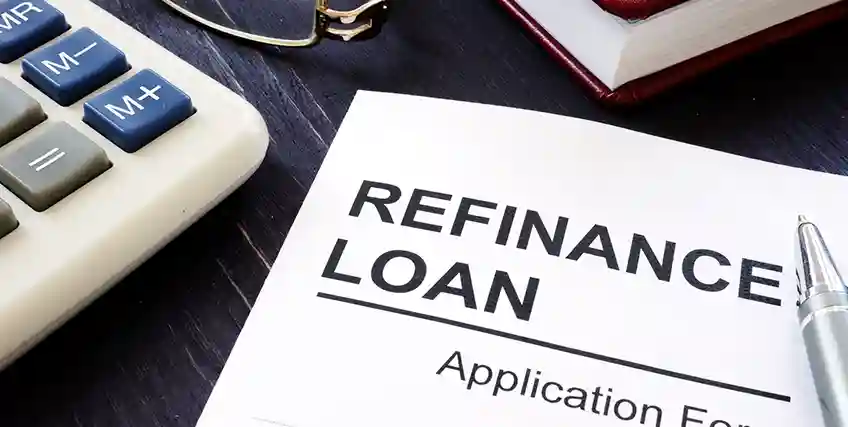Bad Credit Business Loans: What You Need to Know Before Applying
December 09, 2025 | Last Updated on: December 09, 2025

If you have a bad credit FICO score which falls between 300 to 579 it will be considered as a bad credit in business loans. This is something that will impact your business loan approval, if the score is not that great.
According to the Federal Reserve Banks’ 2023 Small Business Credit Survey, access to financing remains a significant challenge for businesses with poor credit. The data shows that 43% of high-credit-risk businesses and 31% of medium-credit-risk businesses were denied a loan, line of credit or merchant cash advance.
Only 13% of high-risk and 33% of medium-risk businesses received full application approval. In contrast, 16% of low-credit-risk businesses were denied, while 62% were fully approved. These figures highlight the ongoing difficulties in securing funding for companies seeking bad credit business loans, emphasizing the need for more accessible financing solutions for businesses with less-than-perfect credit profiles.
But you don't need to worry, because even with a bad credit score, there are chances for you to secure a business loan. If you can select the right lender and the right type of bad credit business loans you will get the required funding, with the best term loans and interest rates. In this article, you will learn the strategies to get the best loans with a bad credit score.
Getting a loan on bad credit score
You can get a small business loan if you have a low FICO score, but you will have to settle for high interest rates or a bad credit business loan, even after having fair credit.
Since your credit score reflects your history of the amount of debt you have been paying, and other expenses. It’s an indicator for the lenders on how you will handle the repayment terms after taking a business loan.
Having a fair or bad business credit score will limit your loan options and the lenders willing to take on the risk of lending to you. If you have a fair or poor business credit score, then you will limit your loan options by limiting the online lenders who will have to take a risk on lending money to you.
A business that has a FICO score of 500 may have to think upon other alternative options, like a merchant cash advance.
How to get loans when you have bad credit
Being a borrower, you need to have a clear idea of what bad credit business loans are and how you can improve them to get yourself approved for financing options.
Update your business plan
A business plan is a strategy that will outline your growing plans for a long term. Many lenders will ask you to show a business plan, especially when you’re a startup.
But if you are not a startup and still have never penned down your business plan then you would have to do the same for presenting it to the lender.
Choose the right type of bad credit business loan
If you have a wealth of options with bad credit business loans on your fingertips, then different types of business funding can be used to fulfill the business needs. Therefore, when you have to select a funding option for bad credit business loans, you need to think about the following factors:
- Why do you need the loan, or what it for
- Which loan can offer you with the best interest rate
- What collaterals do you have if you’re securing the loan
- If it has a flexible repayment length
- How much can you afford to repay
Selecting the right lender
Since the loan and payment or repayment terms depend upon the lender, different lenders have different levels of risk-taking. Below are some points that you should keep in mind while filling the loan application for your startup business loan.
Shop around with different lenders
Lenders will come up with various types of loans, repayment terms, and features, like prepayment discounts when you pay off your loans early. You can compare the differences between these bad credit business loans to find the best one for your business needs.
Check the minimum criteria to apply
Lenders usually set a lump sum criteria to provide short-term loans that you would have to fulfill if you have a minimum credit score. These criteria include annual revenue, personal credit score, duration in business, and some other factors as well.
Compare interest rates and fees
You may also have to pay certain fees for getting a a loan when you have bad credit. Suppose if you are opting for business line of credit, it usually comes with fees or it draws fees. Therefore, you need to keep a check on lenders by doing proper research to find out who provides you with the best fees and rates.
Prequalify to see what type of loan and amount that you can get
There are multiple lenders who will ask you to fill out the application form to prequalify for their soft credit check, which will not affect your credit score. You can also take this practice to check whether the loan terms offered by other lenders are better or not.
Research the lender’s reputation and customer service
You should always work with a lender who has a reputable track record and they wat they handle their customer support. This is one of the major factor in selecting the loan providers.
Types of lenders you might consider
If you're looking for funding but your credit history isn't ideal, several solid options are still available to help you grow your business. Here are some of the most accessible types of lenders for those seeking bad credit business loans:
Minority Depository Institutions (MDIs)
MDIs are financial institutions primarily owned and operated by minority individuals. They often serve minority communities and may provide additional resources such as bilingual staff or culturally tailored services. If you're a minority entrepreneur seeking bad credit business loans, MDIs can be a supportive and mission-driven lending partner.
Online Lenders
Online lenders are typically more flexible regarding credit score requirements, often approving borrowers with FICO scores as low as 600 or even lower. They are one of the most common sources of bad credit business loans. While they do offer fast funding and streamlined applications, be prepared for higher interest rates to compensate for the lender's increased risk.
Community Development Financial Institutions (CDFIs)
CDFIs are certified organizations dedicated to supporting businesses in underserved or low-income areas. Their goal is to provide fair access to capital, making them a reliable choice for entrepreneurs who may not meet the strict criteria of traditional banks. Many CDFIs also offer financial education and support services alongside their loan products.
Traditional Banks and Credit Unions
Traditional loans often offer the lowest interest rates on business loans. However, they also have the most stringent credit and documentation requirements. If your credit is fair, you might qualify for a business line or equipment loan. If not, look for institutions that run community-focused programs, which may provide more flexible terms.
Show strong finances
Lenders prefer to see your past credit history to predict how will you be handling the loan payments, but your small business financing plays an equal role in this to get you approved with the credits. You need to meet the minimum criteria for the type of financing you choose, which includes:
Current debts
Lenders will check your debt by looking at your debt-to-income ratio and debt service coverage ratio. They also want to have a look at 1.25 to 2 DSCR, which will give them an idea that you can cover the debt of bad credit business loans.
Time in business
You should also show the duration of your business, which may act as personal guarantee for the lenders that your business is stable. These vary as per the type of business loans like traditional business bank account, which require two years of business stability, whereas online lenders look for six months to two years.
Cash flow
Lenders also prefer having a look at your bank statements, which are usually for the last three months. They will look for a decent cash flow for your business when they compare your revenue and accounts payable.
Annual revenue
Some lenders might approve a loan if you can prove a strong flow of revenue and haven’t recently defaulted on a loan or missed vendor payments. Online lenders usually want to see at least $100,000 as your revenue, whereas traditional bank lenders would like your revenue to be around $150,000 to $250,000.
Conclusion
Securing financing with a poor credit score can be challenging, but it's far from impossible. By understanding how bad credit business loans work, updating your business plan, strengthening your financial profile, and choosing the right lender, you can significantly improve your chances of meeting eligibility requirements.
Whether you opt for online lenders, CDFIs, or MDIs, carefully compare their rates, terms, and fees for the loan offers. Focus on building consistent revenue, maintaining clear financial records, and prequalifying, when possible, to find the best fit. With persistence and strategy, even businesses with low credit scores can access the funding needed to grow and succeed.
FAQs about bad credit business loans
How to get a business loan with a bad CIBIL?
Small business owners seeking bad credit business loans can improve their chances of approval by highlighting key strengths. A long-standing business with stable revenue, valuable collateral, and a solid repayment history can often outweigh a low credit score, making lenders more confident in offering financing despite credit challenges.
Can you get business credit with bad credit?
It’s possible to qualify for bad credit business loans even with a poor personal credit report, though lenders may offer higher interest rates or tighter terms. Some providers offer secured credit options or business financing that places less emphasis on your personal credit report, making approval more accessible for entrepreneurs.
Can someone with bad personal credit get a business loan?
Offering collateral can increase your chances of qualifying for bad credit business loans. Assets like property, equipment, or inventory are secure, reducing the lender’s risk. This makes it easier to get approved, even with a low credit score, especially for working capital loans aimed at maintaining daily business operations.
Is it possible to start a business with no money?
Leveraging models like drop shipping, print-on-demand, or selling digital products can help you start a business with little to no upfront investment. These approaches minimize initial costs, allowing entrepreneurs to operate with minimal capital. For those seeking additional funding, securing loan amounts can provide the capital needed for growth.
What is the lowest business credit score?
Business credit scores typically range from 0 to 100. A higher score indicates stronger creditworthiness, meaning your business is less risky to lenders as you get a loan with fair credit. Maintaining a good credit score can improve your chances of securing financing and favorable loan terms for your business.




